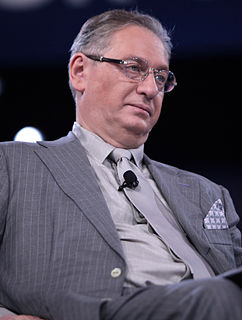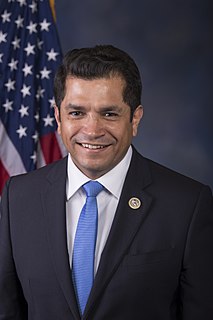A Quote by James Forman, Jr.
I clerked for a judge, William Norris, on the 9th Circuit Court of Appeals right after law school and then for Justice O'Connor the next year.
Related Quotes
My first job out of law school was on the Court of Appeals for the Tenth Circuit, where Gorsuch is a judge. I observed in the year that I worked at the court what many litigants and commentators have since noted: that Gorsuch possesses an incisive legal mind, writes with skill and wit, and is scrupulously fair.
The Supreme Court is about the Constitution. It is about constitutionality. It is about the law. At its bear simplest, it's about the law. It is not about the Democrat Party agenda. Because that's what it's become. The whole judiciary has become that because that's the kind of people they have put on various courts as judges, and every liberal justice on the Supreme Court is a social justice warrior first and a judge of the law second. And if they get one more, then they will have effectively corrupted the Supreme Court.
I think whether you are a judge on my court or whether you are a judge on a court of appeals or any court, and lawyers too - and if you're interested in law yourself, you'll be in the same situation - you have a text that isn't clear. If the text is clear, you follow the text. If the text isn't clear, you have to work out what it means. And that requires context.
I want to appoint Supreme Court justices who understand the way the world really works, who have real-life experience, who have not just been in a big law firm and maybe clerked for a judge and then gotten on the bench, but, you know, maybe they tried some more cases, they actually understand what people are up against.
The President must be true to his word. He must keep his faith with the folks who elected him twice. In other words, he must replace Sandra Day O'Connor with a strict constructionist. The president has a God-given opportunity to change the balance on the Supreme Court. On issue after issue—abortion, sodomy, public display of the Ten Commandments—O'Connor has sided with the court's liberal bloc. Time and again, Justice O'Connor and her colleagues have used the Constitution as an excuse to force weird social experiments on the nation.
As proof of this statement, consider this question: Have the people ever been known to rise against the Court of Appeals, or mob a Justice of the Peace, in order to get higher wages, free credit, tools of production, favorable tariffs, or government-created jobs? Everyone knows perfectly well that such matters are not within the jurisdiction of the Court of Appeals or a Justice of the Peace. And if government were limited to its proper functions, everyone would soon learn that these matters are not within the jurisdiction of the law itself.
When I was sworn in as a judge of the court of appeals, I took an oath. I put my hand on the Bible and I swore that I would administer justice without respect to persons, that I would do equal right to the poor and to the rich, and that I would carry out my duties under the Constitution and the laws of the United States.
For better or worse, we are the Court of Appeals for the Hollywood Circuit. Millions of people toil in the shadow of the law we make, and much of their livelihood is made possible by the existence of intellectual property rights. But much of their livelihood - and much of the vibrancy of our culture - also depends on the existence of other intangible rights: The right to draw ideas from a rich and varied public domain, and the right to mock, for profit as well as fun, the cultural icons of our time.



































